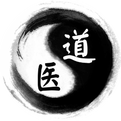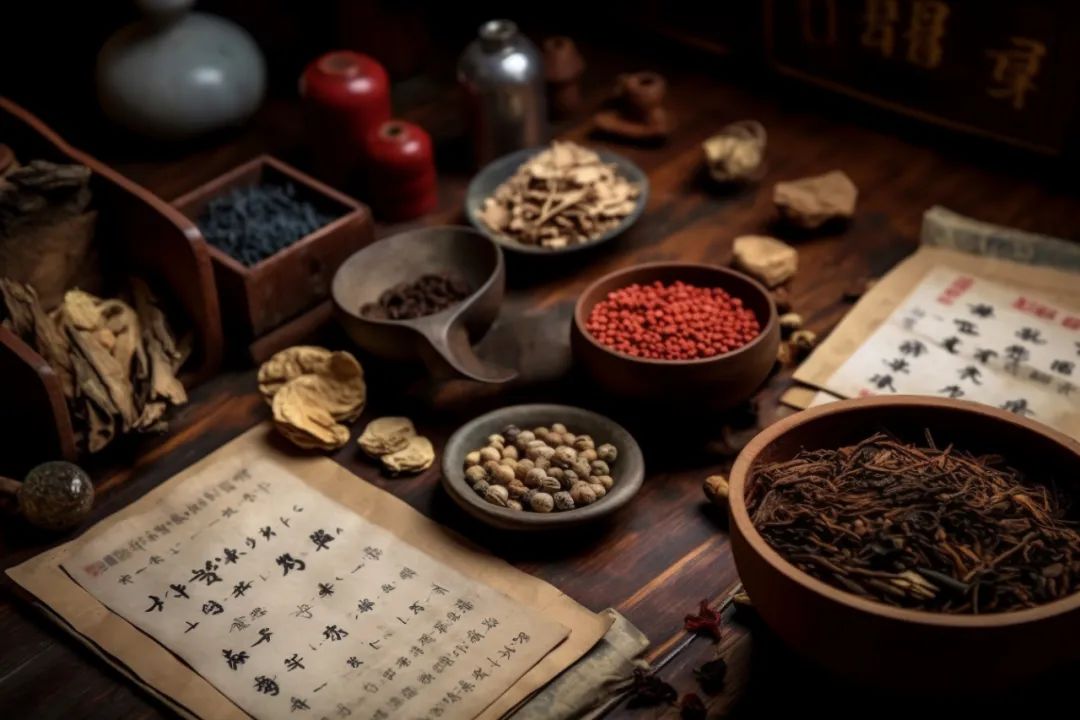


Ancient scholars conducted in-depth research on the compatibility and application of Chinese herbal decoctions, forming soups to address common conditions using four types of herbs, which are well-documented in the history of Chinese medicine.
Notable decoctions include Si Shen Tang (Four Gods Soup), Si Wu Tang (Four Substances Soup), and Si Jun Zi Tang (Four Gentlemen Soup). These herbal soups are widely used and have significant medicinal effects, remaining popular among the public today. However, many people are only familiar with the names of these three soups without knowing their uses. Today, we will explore the applications and differences of these three decoctions.



 1. Si Shen Tang (Four Gods Soup)
1. Si Shen Tang (Four Gods Soup)

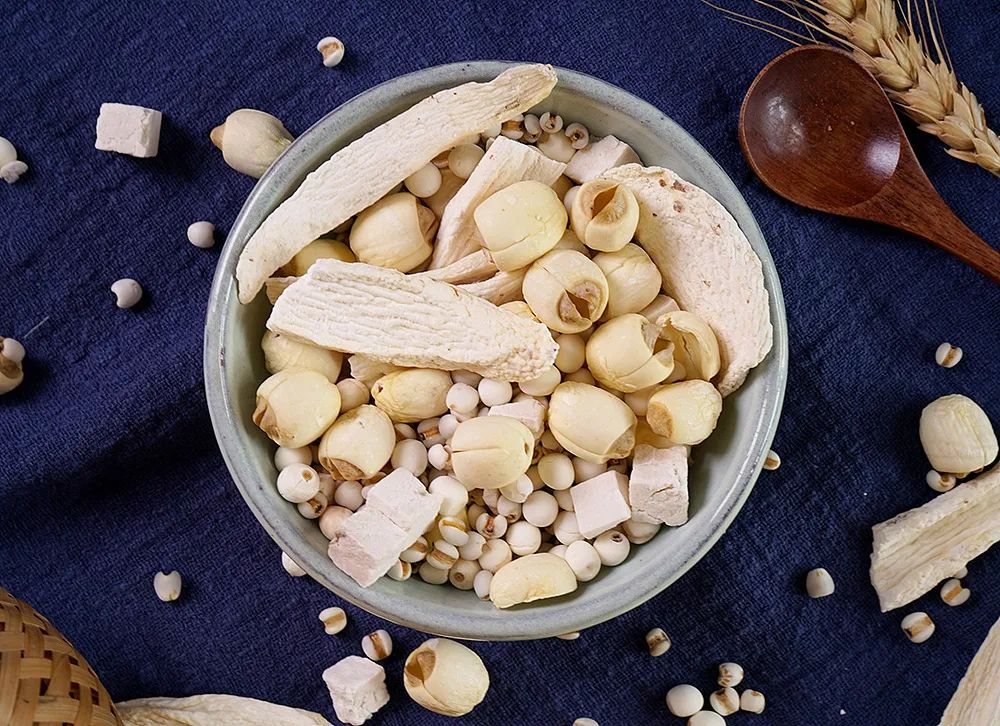
Ingredients:Fu Ling (Poria), Huai Shan (Chinese Yam), Lian Zi (Lotus Seed), Qian Shi (Euryale Seed or Yi Yi Ren (Job’s Tears))Effects:Strengthens the spleen, clears heat, promotes urination, nourishes the skin, and reduces dryness.Si Shen Tang is a well-known spleen-strengthening recipe in TCM, where the “Four Gods” refer to Fu Ling, Huai Shan, Lian Zi, and Qian Shi (or Yi Yi Ren).These four “deities” complement each other when combined, creating a soup that offers numerous benefits such as strengthening the spleen, nourishing the skin, and reducing dryness, truly embodying the name “Four Gods”.According to legend, when Emperor Qianlong traveled south, his four loyal ministers fell ill due to their hard work and the adverse effects of travel. The imperial physician was at a loss. The emperor then ordered the local governor to seek a remedy, and soon a monk came forward with a prescription of equal parts “Lotus Seed, Euryale Seed, Huai Shan, and Fu Ling stewed with pig stomach”, declaring, “Four ministers, mission accomplished!” After taking this prescription, the four ministers quickly recovered. Since then, whenever officials traveled south, they would use this recipe to prepare food for health, and over time, it became widely known as ‘Si Chen Tang’ (Four Ministers Soup). When this recipe reached Taiwan, due to the misunderstanding of the name ‘Si Chen Tang’, which sounds similar to ‘Si Shen Tang’, it was misnamed as ‘Four Gods Soup’.Daily Recipe: Four Gods Pig Intestine SoupIngredients:Pig intestine 250g, Yi Yi Ren 30g, Lian Zi 30g (or Dang Shen), Qian Shi 20g, Fu Ling 10g, salt 5g, flour 100g, rice wine 15mlSteps:1. Clean the pig intestine thoroughly with water, then use chopsticks to turn it inside out and wash the inner wall to remove excess fat, then wash it repeatedly with flour to remove the surface mucus.2. Rinse the pig intestine several times with clean water until completely clean, then blanch in boiling water for 2 minutes to remove the fishy smell, and rinse with running cold water to remove any residue.3. In a pot, add clean water and bring to a boil, then add the pig intestine and cook for 10 minutes, then turn off the heat and cover to steam for 15 minutes. Remove and let cool slightly, then cut into 3cm long diagonal pieces.4. Rinse Yi Yi Ren, Lian Zi, Qian Shi, and Fu Ling with clean water and place in a pot, add an appropriate amount of clean water (about 1000ml), bring to a boil, then add the pig intestine pieces and simmer on low heat for 30 minutes.5. Finally, season with salt and rice wine.Nutritional Tip:Four Gods Soup can help regulate the immune system, strengthen the body, reduce swelling, promote urination, and beautify the skin, suitable for those with weak intestinal function, postpartum recovery, and post-surgery care.Tips:1. The pig intestine has a strong odor; when cleaning, be sure to use flour repeatedly, otherwise, the Four Gods Soup will be ruined by its smell. Beer is also a good material for cleaning pig intestines, so feel free to try it if possible.2. Dried lotus seeds may have bitter cores; check before use, and if present, remove them with a fine needle.
 2. Si Wu Tang (Four Substances Soup)
2. Si Wu Tang (Four Substances Soup)

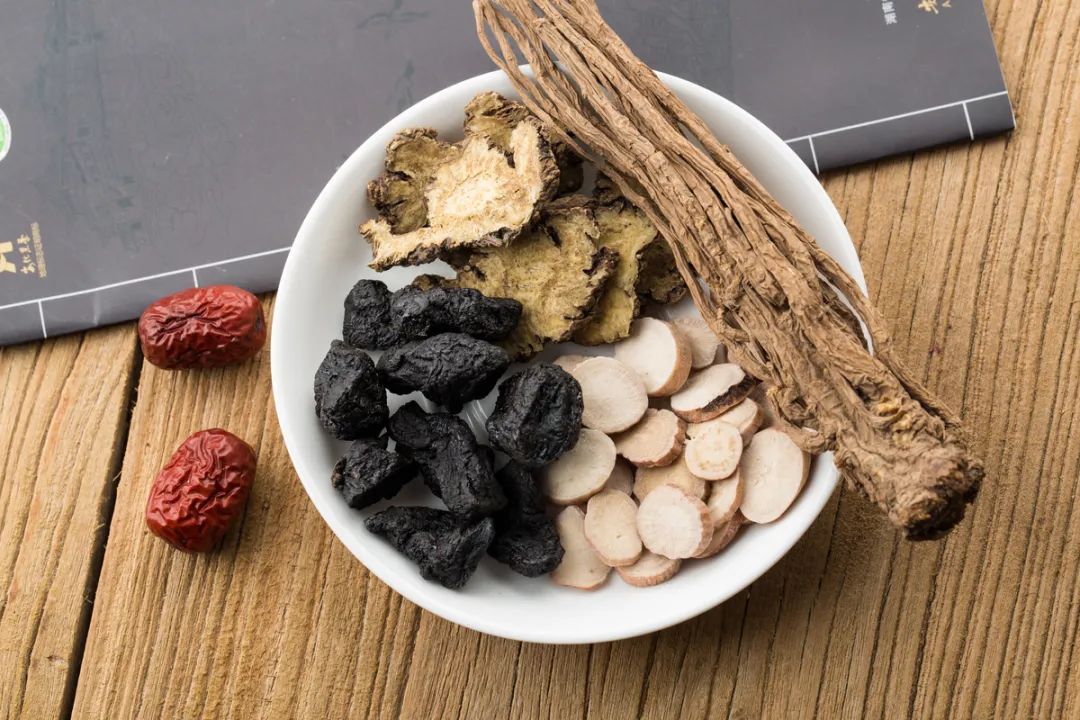 Ingredients:Shu Di Huang (Rehmannia), Bai Shao (White Peony), Dang Gui (Angelica), and Chuan Xiong (Szechuan Lovage).Effects:Blood tonifying and regulating. Treats deficiency and damage of the Chong and Ren channels. Irregular menstruation, abdominal pain, restless fetal movement during pregnancy, excessive postpartum bleeding, abdominal masses, and intermittent chills and fever.Si Wu Tang has a history of over a thousand years in clinical application and is known as the “Holy Formula for Women’s Health”.Why? Let’s discuss the three common issues women face: first, women are prone to blood deficiency, commonly known as anemia; second, women are prone to blood stasis; third, women often experience irregular menstruation. These three common causes often interrelate: blood deficiency can lead to blood stasis, and blood stasis can cause blood deficiency, which in turn leads to irregular menstruation. Si Wu Tang effectively addresses these physiological characteristics of women, providing excellent blood tonifying and regulating effects, making it a formidable remedy against these issues.Moreover, the formula of Si Wu Tang is very reasonable, combining Shu Di Huang and Bai Shao, which are soft and nourishing blood herbs (blood tonics), with the warming and invigorating Dang Gui and Chuan Xiong (qi tonics), achieving a balance of movement and stillness, tonifying blood without causing stagnation, invigorating blood without harming it. Some blood tonifying and invigorating herbs can easily cause heat if used improperly, leading to excessive deficiency heat. However, Si Wu Tang is warm but not drying, nourishing but not greasy, making it suitable for long-term use and maintenance. It is a commonly used formula for tonifying blood and regulating menstruation, hence it is called the “Holy Formula for Women’s Health”.Daily Recipe: Rose Si Wu DrinkIngredients: Rose petals, Dang Gui 150g, Bai Shao 250g, Shu Di 100g, Chuan Xiong 50g, red dates 100g.Steps:1. Soak the herbs in a large pot of water for 30 minutes; add the rose petals after the decoction is ready, so they do not need to be soaked initially;2. After soaking the herbs, bring to a boil over high heat, then reduce to low heat, covering the pot;3. Simmer on low heat for 2-3 hours, then turn to high heat to boil, add the rose petals, stir, then return to low heat and cover;4. After five minutes, turn off the heat, wait ten minutes, then pour the decoction into a pot, let it cool, and store in small bottles in the refrigerator.Nutritional Tip:Si Wu Tang has blood tonifying and invigorating effects, replenishing the yin blood consumed during menstruation. Rose petals have a mild blood invigorating effect and contain vitamin C. Red dates are rich in various nutrients and are known as a natural source of vitamins, which can tonify qi and strengthen the spleen.Tips:Each time, take a small bowl and heat it for drinking, starting after menstruation ends, twice a day, morning and evening, or after meals, for seven consecutive days, or once a day for fourteen days.
Ingredients:Shu Di Huang (Rehmannia), Bai Shao (White Peony), Dang Gui (Angelica), and Chuan Xiong (Szechuan Lovage).Effects:Blood tonifying and regulating. Treats deficiency and damage of the Chong and Ren channels. Irregular menstruation, abdominal pain, restless fetal movement during pregnancy, excessive postpartum bleeding, abdominal masses, and intermittent chills and fever.Si Wu Tang has a history of over a thousand years in clinical application and is known as the “Holy Formula for Women’s Health”.Why? Let’s discuss the three common issues women face: first, women are prone to blood deficiency, commonly known as anemia; second, women are prone to blood stasis; third, women often experience irregular menstruation. These three common causes often interrelate: blood deficiency can lead to blood stasis, and blood stasis can cause blood deficiency, which in turn leads to irregular menstruation. Si Wu Tang effectively addresses these physiological characteristics of women, providing excellent blood tonifying and regulating effects, making it a formidable remedy against these issues.Moreover, the formula of Si Wu Tang is very reasonable, combining Shu Di Huang and Bai Shao, which are soft and nourishing blood herbs (blood tonics), with the warming and invigorating Dang Gui and Chuan Xiong (qi tonics), achieving a balance of movement and stillness, tonifying blood without causing stagnation, invigorating blood without harming it. Some blood tonifying and invigorating herbs can easily cause heat if used improperly, leading to excessive deficiency heat. However, Si Wu Tang is warm but not drying, nourishing but not greasy, making it suitable for long-term use and maintenance. It is a commonly used formula for tonifying blood and regulating menstruation, hence it is called the “Holy Formula for Women’s Health”.Daily Recipe: Rose Si Wu DrinkIngredients: Rose petals, Dang Gui 150g, Bai Shao 250g, Shu Di 100g, Chuan Xiong 50g, red dates 100g.Steps:1. Soak the herbs in a large pot of water for 30 minutes; add the rose petals after the decoction is ready, so they do not need to be soaked initially;2. After soaking the herbs, bring to a boil over high heat, then reduce to low heat, covering the pot;3. Simmer on low heat for 2-3 hours, then turn to high heat to boil, add the rose petals, stir, then return to low heat and cover;4. After five minutes, turn off the heat, wait ten minutes, then pour the decoction into a pot, let it cool, and store in small bottles in the refrigerator.Nutritional Tip:Si Wu Tang has blood tonifying and invigorating effects, replenishing the yin blood consumed during menstruation. Rose petals have a mild blood invigorating effect and contain vitamin C. Red dates are rich in various nutrients and are known as a natural source of vitamins, which can tonify qi and strengthen the spleen.Tips:Each time, take a small bowl and heat it for drinking, starting after menstruation ends, twice a day, morning and evening, or after meals, for seven consecutive days, or once a day for fourteen days.
 3. Si Jun Zi Tang (Four Gentlemen Soup)
3. Si Jun Zi Tang (Four Gentlemen Soup)

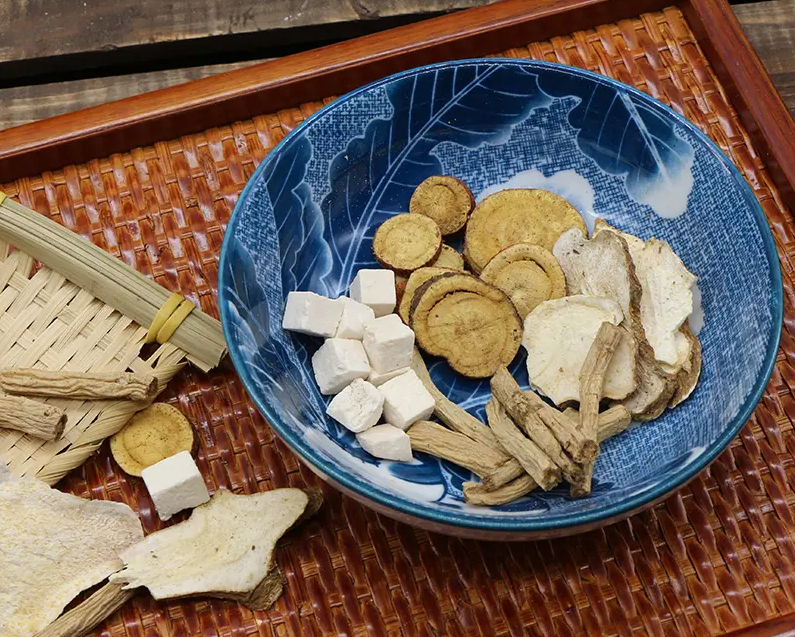 Ingredients:Ren Shen (Ginseng), Bai Zhu (White Atractylodes), Fu Ling (Poria), and Gan Cao (Licorice).Effects:Strengthens the stomach and spleen, tonifies yang and qi, used for chronic gastritis, anemia, gastrointestinal weakness, loss of appetite, vomiting, and weakness in the limbs due to spleen and stomach qi deficiency.Si Jun Zi Tang is a foundational formula for treating spleen and stomach qi deficiency, from which many subsequent tonifying formulas have been derived.Clinical applications focus on symptoms such as pale complexion, poor appetite, shortness of breath, pale tongue with white coating, and weak pulse.Si Jun Zi Tang is derived from the “Li Zhong Wan” in the “Shang Han Lun”, replacing the hot and dry Gan Jiang with the mild Fu Ling, transforming it from a formula for expelling cold to one for warming and tonifying the middle qi.With only four ingredients: Ren Shen, Bai Zhu, Fu Ling, and Gan Cao, it is neither hot nor drying, applying moderate force, embodying the ancient concept of “gentlemen achieving harmony”.Daily Recipe: Lamb Si Jun Zi SoupIngredients:Lamb 500g, Dang Shen 10g, Fu Ling 10g, Bai Zhu 10g, and Gan Cao 10g.Steps:1. Clean the four herbs and place them in a herb bag.2. Blanch the lamb, rinse with clean water, place in a clay pot, add sufficient clean water, scallions, ginger, yellow wine, and the herb bag.3. Simmer for about 5 hours until the lamb is tender, then add salt and pepper before serving.Nutritional Tip:Ren Shen is warm and tonifying, benefiting qi and strengthening the spleen; Bai Zhu and Fu Ling strengthen the spleen and dry dampness; Gan Cao harmonizes the formula and enhances the effects of the other herbs. Although the formula contains only four herbs, the combination is very precise, providing qi tonifying and spleen strengthening effects.
Ingredients:Ren Shen (Ginseng), Bai Zhu (White Atractylodes), Fu Ling (Poria), and Gan Cao (Licorice).Effects:Strengthens the stomach and spleen, tonifies yang and qi, used for chronic gastritis, anemia, gastrointestinal weakness, loss of appetite, vomiting, and weakness in the limbs due to spleen and stomach qi deficiency.Si Jun Zi Tang is a foundational formula for treating spleen and stomach qi deficiency, from which many subsequent tonifying formulas have been derived.Clinical applications focus on symptoms such as pale complexion, poor appetite, shortness of breath, pale tongue with white coating, and weak pulse.Si Jun Zi Tang is derived from the “Li Zhong Wan” in the “Shang Han Lun”, replacing the hot and dry Gan Jiang with the mild Fu Ling, transforming it from a formula for expelling cold to one for warming and tonifying the middle qi.With only four ingredients: Ren Shen, Bai Zhu, Fu Ling, and Gan Cao, it is neither hot nor drying, applying moderate force, embodying the ancient concept of “gentlemen achieving harmony”.Daily Recipe: Lamb Si Jun Zi SoupIngredients:Lamb 500g, Dang Shen 10g, Fu Ling 10g, Bai Zhu 10g, and Gan Cao 10g.Steps:1. Clean the four herbs and place them in a herb bag.2. Blanch the lamb, rinse with clean water, place in a clay pot, add sufficient clean water, scallions, ginger, yellow wine, and the herb bag.3. Simmer for about 5 hours until the lamb is tender, then add salt and pepper before serving.Nutritional Tip:Ren Shen is warm and tonifying, benefiting qi and strengthening the spleen; Bai Zhu and Fu Ling strengthen the spleen and dry dampness; Gan Cao harmonizes the formula and enhances the effects of the other herbs. Although the formula contains only four herbs, the combination is very precise, providing qi tonifying and spleen strengthening effects.
Formula Song:In Si Jun Zi Tang, harmony is the essence, Ren Shen, Fu Ling, Bai Zhu, and Gan Cao are the ingredients, a foundational formula for tonifying qi and strengthening the spleen, suitable for treating spleen and stomach qi deficiency.





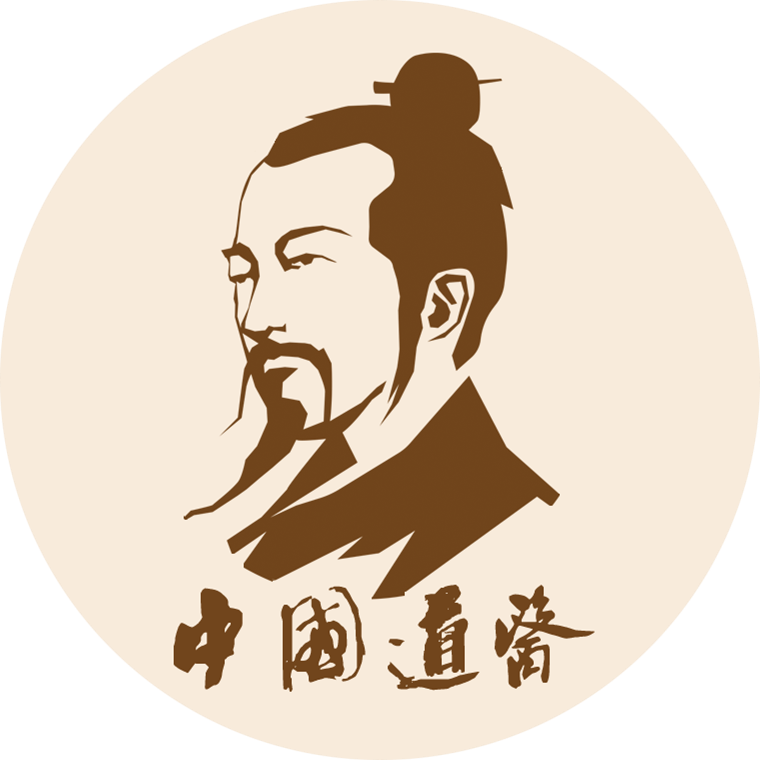
Daoist Medical Video Channel
⊙ The content of this article is for clinical reference only; non-TCM professionals should not attempt to self-medicate.
⊙ Some images and texts are sourced from the internet; if there are any copyright issues, please contact us for removal.
⊙ For Daoist medical consultations, add WeChat ID: daojiaox
⊙ For submissions and collaborations: [email protected] (original submissions are welcome)
Selected Articles
❶ Hypochondria is rooted in the Gallbladder Meridian; remember the “Five Golden Flowers” on this meridian!
❷ Eating fruits this way increases dampness! How to eat fruits? Remember these points!
❸ The mystery of guarding the lower Dantian: inhaling unites all meridians, exhaling opens all acupoints!
❹ Moxibustion on this “eczema point” ensures quick recovery from eczema!
❺ Headaches for over a decade, two herbs, one dose stops it!
❻ Learn one herb daily: Qian Shi!
❼ Not eating after noon, being full in the morning and empty in the evening, salty in the morning and sweet in the evening, and combing hair when hungry and bathing when full, what ancient wisdom does this contain?
❽ A universal formula that sweeps away cold toxins, damp toxins, blood toxins, phlegm toxins, and food toxins! No toxins, a light body!
❾ The essentials of Daoist practice: Yuan Qi is fundamental, Yuan Shen is the master!
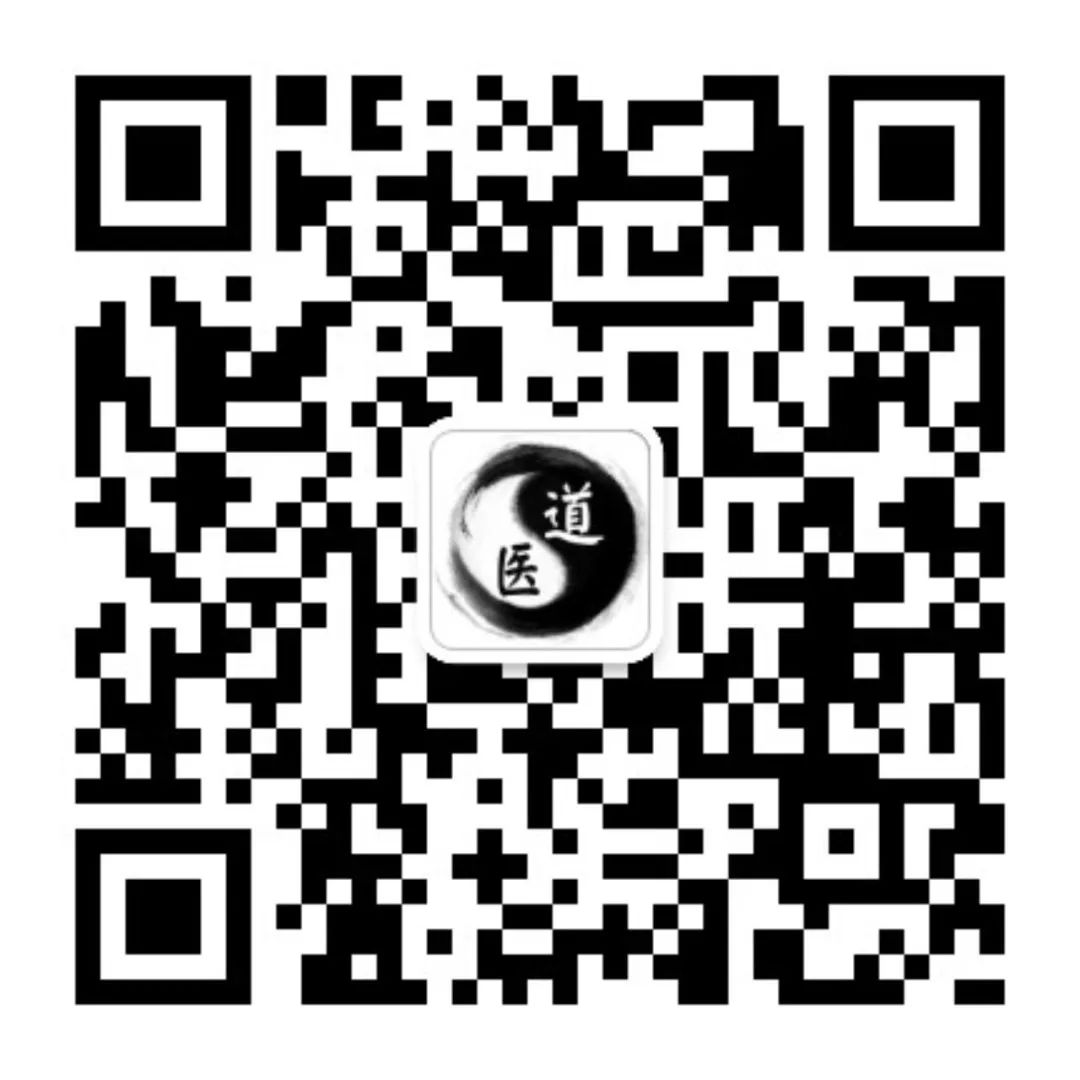
 Scan to Follow Daoist Medicine
Scan to Follow Daoist Medicine
Here, there are no chicken soup recipes, folk remedies, rumors, or advertisements, only reliable Daoist health and wellness knowledge.


